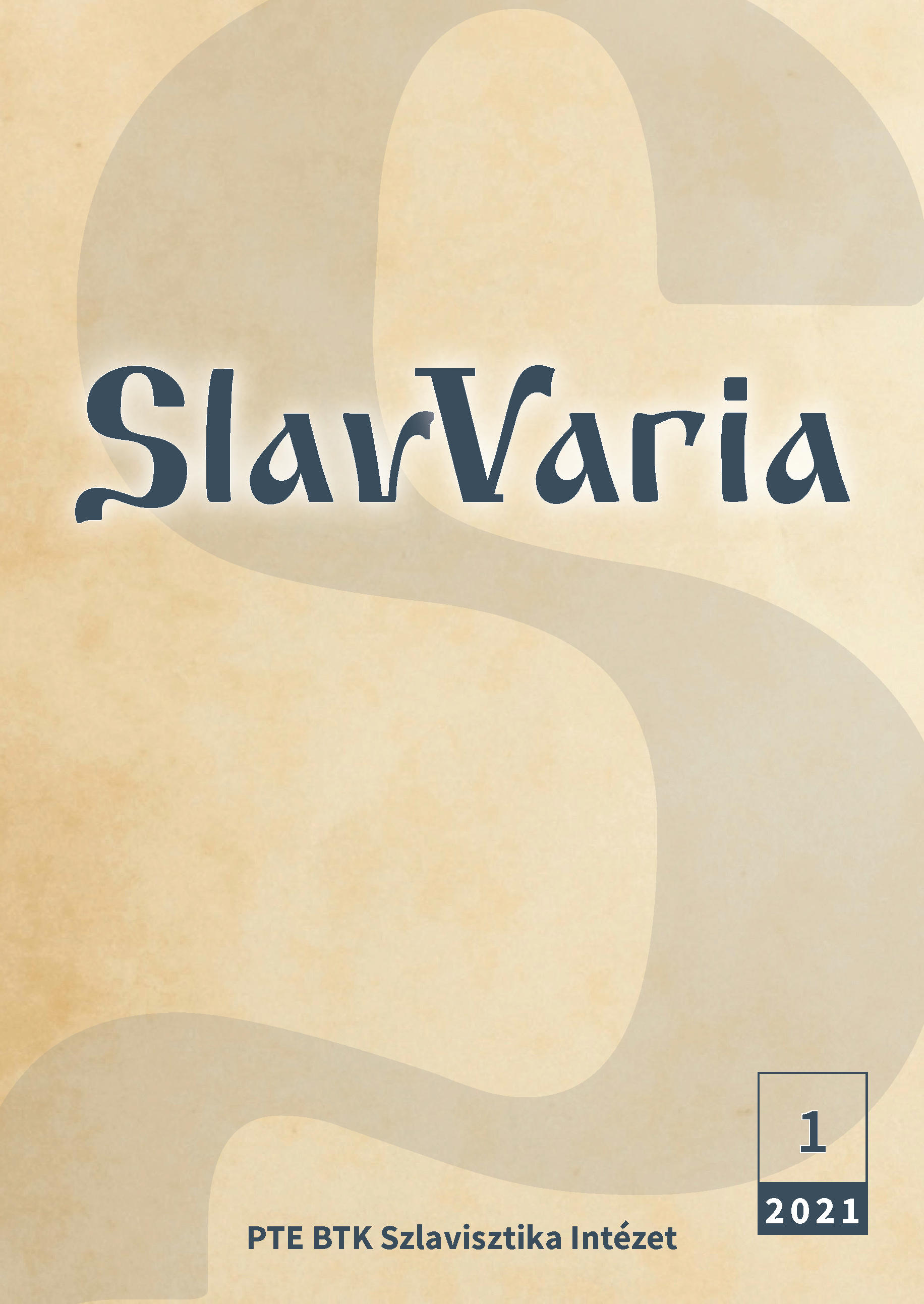Из восточнославянской лексики: русск. диал. алынья ; блр. ЛахазваЛахазва; русск. диал. обазуритьобазурить(ся ), обазулитьобазулить(ся ), блр. абазурыцца
DOI:
https://doi.org/10.15170/SV.1/2021.283Kulcsszavak:
Keywords: alynĭâalynĭâ, LahazvaLahazva, obazuritĭobazuritĭ(sâ ), etymology, dialectAbsztrakt
From East Slavic Vocabulary: Russ. dial. alynĭâ ; Bel. Lahazva ; Russ. dial. obazuritĭobazuritĭ(sâ ), obazulitĭobazulitĭ(sâ ), Bel. abazuryccaabazurycca. This article presents an etymological analysis of three East Slavic lexical i tems. Russ. dial. alynĭâ
‘cow’ reflects PSl [* olni olnĭji ‘doe’ but omitted the regular metathesis in the initial ol - and eliminated the closed syllable by developing a secondary extra extra-short vowel; this phenomenon is known in some peripheral Slavic diale cts. The
Belarusian hydronym Lahazva is derived from the rare anthroponymic stem by means of the formant -va (< *-ū, -ъve ). Russian and Belarusian dialectical verbs obazuritĭobazuritĭ(sâ ), obazulitĭobazulitĭ(sâ ), abazurycca are prefixial( prefixial(-postfixal)
formations from the verb verbs bazuritĭbazuritĭ, bazulitĭbazulitĭ(sâ ), many of whose meanings are close to those of the verbs in discussion.


